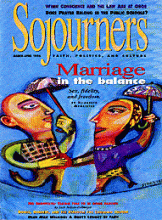Hall of Fame pitcher Bob Feller once criticized Little League baseball for its interference in children's spontaneous play. He went so far as to say that the structured "fun" that adults impose on kids in these miniature versions of the big leagues was the worst thing that had happened to baseball in the last generation. Feller felt that the innumerable variations on organized baseball which kids constantly invented-games like "rollies to the bat" and "scrub"-as well as the general goofing off that kids did when left alone on ballfields, far surpassed the adult-ridden "games" of the Little League.
In terms of community-building, too, there's something to be said for the old ballplayer's nostalgia about a time when youngsters organized their own ball games and every other sort of game. Kids have an enormous capacity to form and maintain community during their playtime. There is organization, structure, discipline, sanction, forgiveness, spontaneity-and sheer fun-in the games devised by children when left on their own.
In the community where I live, we once counted six youngsters, ranging in age from 3 to 14. During one particular summer when the Olympic Games were taking place, these six, together with an assortment of their neighborhood friends, conducted their own games in the restricted confines of our inner-city, asphalt back yard. For hours each day, the kids replicated the running, jumping, vaulting, and throwing that they were watching on television in the evenings.
These special Summer Olympics featured trash barrels as props for all sorts of agility tests. The two sawhorses our community owns became the low and high hurdles, as well as measures for a couple of miniature pole vaulters. Chalk marks on the concrete marked starting and finishing lines.
Read the Full Article
